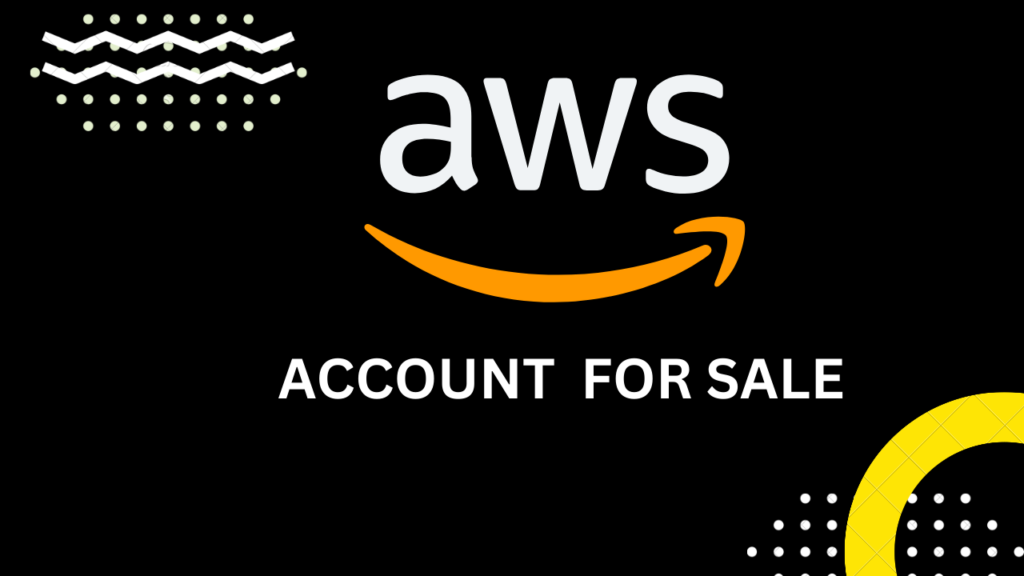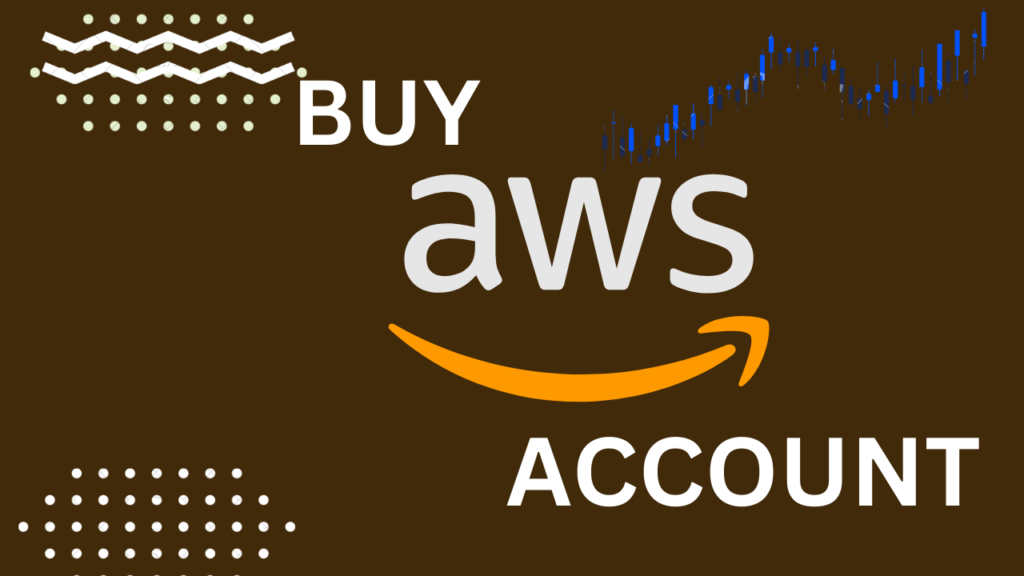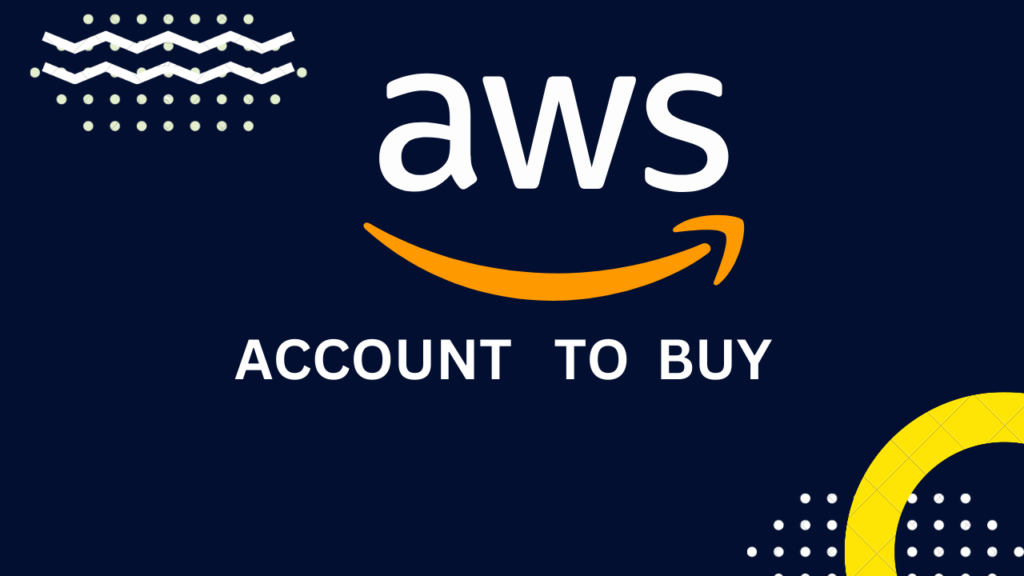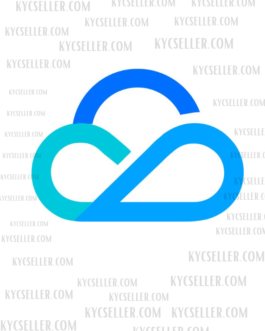Description
Buy AWS accounts
Amazon Web Services (AWS) is a widely adopted and highly regarded cloud computing platform for various reasons. Here are several key factors that contribute to the popularity and success of AWS:
Global Reach:
AWS has a vast global infrastructure with data centres strategically located around the world. This allows businesses to deploy applications and services close to their end-users, reducing latency and improving performance.
Comprehensive Service Offering:
AWS provides a wide range of cloud services, including computing power, storage, databases, machine learning, analytics, networking, security, and more. This comprehensive suite of services caters to the diverse needs of businesses across various industries.
Scalability and Flexibility:
AWS offers the ability to scale resources up or down based on demand. This flexibility is crucial for businesses with varying workloads, ensuring they can adapt and optimise their infrastructure according to changing requirements.
Security and Compliance:
AWS prioritises security and has robust measures in place to protect data and infrastructure. It complies with numerous industry standards and certifications, making it suitable for businesses with strict security and compliance requirements.
Reliability and High Availability:
AWS has a reputation for providing high availability and reliability. With redundant systems and data centres, AWS minimises the risk of downtime and ensures that services remain accessible even in the event of hardware failures or other issues.
Ecosystem and Integration:
AWS has a vast ecosystem of partners, third-party integrations, and a supportive community. This makes it easier for businesses to find solutions that seamlessly integrate with their existing systems and workflows.
Innovation and Continuous Improvement:
AWS invests heavily in research and development, leading to regular updates, new features, and innovations. This commitment to continuous improvement allows businesses to stay at the forefront of technological advancements.
Cost-Efficiency:
AWS offers a pay-as-you-go pricing model, allowing businesses to pay only for the resources they consume. This cost-effective approach eliminates the need for upfront capital investment and enables organisations to align their expenses with actual usage.
Community and Support:
AWS has a large and active community of developers, architects, and businesses. This community support, along with extensive documentation and resources, makes it easier for organisations to leverage AWS effectively.
Global Network of Partners:
AWS has a vast network of consulting partners, technology partners, and managed service providers. This network enables businesses to find the right expertise and support for their specific needs.
In summary, AWS’s combination of global infrastructure, extensive service offerings, security measures, scalability, and commitment to innovation makes it a preferred choice for many organisations looking to leverage cloud computing.

Available AWS accounts for sale
Whatever your use for personal or business. Single to bulk, tire to premium all types of AWS accounts are available here. If you are a company or organisation and you need bulk and number of accounts then you are in the right place. Revolutionise your business with our reliable Amazon Web Services (AWS), the world’s leading cloud computing platform! For a limited time, experience unmatched scalability, security, and innovation at an unbeatable price.
- Global Reach: Deploy applications worldwide for optimal performance.
- Comprehensive Service Offering: Access a full spectrum of cloud services tailored to your business needs.
- Security and Compliance: Trust AWS’s industry-leading security measures and compliance certifications.
Seize the opportunity to transform your business with AWS! Act fast, as this sale won’t last forever. Embrace the cloud revolution today!
Is there a need to buy verified AWS accounts?
The concept of “verified AWS accounts” is not a standard or officially recognized term by Amazon Web Services (AWS). AWS accounts themselves go through a verification process when they are created to ensure the validity of the account holder’s identity and payment information. Here are some reasons why the verification process is crucial:
-
Security:
- The verification process helps enhance the overall security of AWS accounts by ensuring that the individuals or organisations creating accounts are legitimate entities. This is crucial for preventing unauthorised access and protecting sensitive data.
-
Fraud Prevention:
- Verifying AWS accounts helps in preventing fraudulent activities. It adds an extra layer of authentication, reducing the likelihood of malicious actors creating fake accounts for nefarious purposes.
-
Compliance:
- AWS has strict security and compliance standards. Verifying accounts ensures that users adhere to these standards, particularly when dealing with sensitive data or industries with specific regulatory requirements.
-
Resource Allocation:
- Verification is essential for AWS to allocate resources effectively. It helps AWS manage its infrastructure and ensures that resources are distributed fairly among legitimate users.
-
Payment Processing:
- Verifying accounts is crucial for payment processing. AWS needs to ensure that the payment information provided during the account creation process is valid, reducing the risk of payment-related issues.
-
Legal and Contractual Obligations:
- In some cases, verification may be necessary to fulfill legal and contractual obligations. This is especially important for businesses and enterprises that require a formal agreement with AWS.
-
Customer Trust:
- A verification process instils confidence in customers that AWS takes security seriously. It establishes trust in the platform, making users more comfortable hosting their applications and data on AWS.
While AWS itself ensures the verification of accounts during the account creation process, users should be cautious about services or entities claiming to provide “verified AWS accounts” outside of the official AWS channels. It’s important to follow AWS’s guidelines for account creation and adhere to their terms of service to ensure a secure and legitimate usage of the platform.

FAQs to buy AWS account
Certainly! Here are some frequently asked questions (FAQs) related to Amazon Web Services (AWS):
1. What is AWS?
- AWS (Amazon Web Services) is a comprehensive cloud computing platform offered by Amazon. It provides a wide range of services, including computing power, storage, databases, machine learning, analytics, and more.
2. How does AWS pricing work?
- AWS follows a pay-as-you-go pricing model, where users pay only for the resources they consume. Pricing varies based on the type and amount of resources used. AWS also offers free tiers for certain services with usage limitations.
3. What is an EC2 instance?
- Amazon Elastic Compute Cloud (EC2) instances are virtual servers in the cloud that users can rent on a per-hour or per-second basis. EC2 instances provide scalable compute capacity and are fundamental to many AWS applications.
4. How does AWS ensure security?
- AWS employs a shared responsibility model, where AWS is responsible for the security of the cloud infrastructure, and users are responsible for securing their data and applications. AWS implements security measures like encryption, identity and access management (IAM), and compliance certifications.
5. What is S3?
- Amazon Simple Storage Service (S3) is an object storage service that allows users to store and retrieve any amount of data from anywhere on the web. It is designed to be highly scalable, durable, and secure.
6. What is AWS Lambda?
- AWS Lambda is a serverless computing service that lets users run code without provisioning or managing servers. Users pay only for the compute time consumed by their code.
7. How can I get AWS support?
- AWS provides various support plans, including a free basic plan and premium plans with varying levels of support. Users can access documentation, forums, and submit support tickets based on their support plan.
8. What is the AWS Well-Architected Framework?
- The AWS Well-Architected Framework provides guidance on designing and operating reliable, secure, efficient, and cost-effective systems in the cloud. It consists of best practices, design principles, and questions to evaluate workloads.
9. Can I use AWS for machine learning?
- Yes, AWS offers a variety of machine learning services, including Amazon SageMaker for building, training, and deploying machine learning models, and services like Amazon Rekognition and Amazon Comprehend for specific use cases.
10. How does AWS handle compliance?
– AWS complies with various industry standards and certifications, including HIPAA, GDPR, and FedRAMP. Users can reference the AWS compliance centre for information on specific certifications.
These FAQs provide a broad overview of common questions related to AWS. Users are encouraged to explore the official AWS documentation and support resources for more in-depth information.

Why do you choose us to buy AWS accounts?
Here are a few additional information about every one of the following reasons
Competitive rates:
We provide competitive rates when purchasing AWS as we strive to provide the most price that our users can get. We realise that you’re faced with an option when it comes to purchasing AWS. We would like to ensure that you select us because we provide the most competitive price.
Secure and safe platform:
We utilise a variety of security measures to safeguard your data, including the use of encryption and fraud prevention along with two-factor security. We are very concerned about security and wish you to have confidence that your transaction is secure when you do business with us.
Speedy and efficient:
We process transactions fast and efficiently due to the fact that we know that time is crucial to you. Our goal is to help you have your AWS as swiftly as you can, which is why we do our best to ensure that you get your money as swiftly as possible.
Good reputation:
We are known for our excellent customer service. We know that purchasing AWS can be a challenging undertaking, so we’d like to ensure that you are satisfied. We’re available to answer any questions you may have and assist you in the transaction.
100% money back guarantee:
We only offer a product guarantee, if not three working days, or for 72 hours. cash return guarantee.
Available 24/7:
We are always available to answer any questions you may have and assist you in the transaction. We realise that you could have to purchase AWS any time of the day or night, so we want to ensure that we’re available to assist you.
We hope that this article will be of help. For any additional queries, please don’t hesitate to get in touch with us.
What will you do to buy AWS accounts from us?
It appears there might be a misunderstanding or confusion in your request. AWS (Amazon Web Services) accounts are typically not categorised in the traditional sense like products or services. AWS accounts are created by individuals or organisations to access and utilise cloud computing services provided by AWS.
However, within AWS, there are various service categories that users can leverage based on their needs. Some key AWS service categories include:
-
Compute Services:
- Amazon EC2 (Elastic Compute Cloud): Virtual servers in the cloud.
- AWS Lambda: Serverless computing service.
-
Storage Services:
- Amazon S3 (Simple Storage Service): Object storage service.
- Amazon EBS (Elastic Block Store): Block-level storage volumes for EC2 instances.
-
Database Services:
- Amazon RDS (Relational Database Service): Managed relational databases.
- Amazon DynamoDB: Fully managed NoSQL database service.
-
Networking Services:
- Amazon VPC (Virtual Private Cloud): Isolated virtual networks.
- Amazon Route 53: Scalable domain name system (DNS) web service.
-
Machine Learning and AI Services:
- Amazon SageMaker: Fully managed machine learning service.
- Amazon Polly: Text-to-speech service.
- Amazon Rekognition: Image and video analysis service.
-
Security Services:
- AWS Identity and Access Management (IAM): Securely control access to AWS services.
- AWS Key Management Service (KMS): Manage cryptographic keys for your applications.
-
Management and Monitoring Services:
- AWS CloudWatch: Monitor and manage AWS resources.
- AWS CloudTrail: Track user activity and API usage.
-
Developer Tools:
- AWS CodeCommit: Version control service.
- AWS CodeBuild: Fully managed build service.
It’s important to note that AWS services cater to a wide range of needs, and users can choose services based on their specific requirements. If you have a particular aspect of AWS accounts or services in mind, please provide more details for a more targeted response.
Why is AWS the best cloud service in the world?
Amazon Web Services (AWS) is often considered one of the best cloud computing platforms for a variety of reasons:
-
Comprehensive Service Offering:
- AWS provides a vast and diverse set of cloud services, covering computing power, storage, databases, machine learning, analytics, networking, security, and more. This comprehensive offering allows businesses to meet a wide range of needs within a single platform.
-
Global Infrastructure:
- AWS has a global network of data centres in multiple geographic regions. This allows users to deploy applications and services close to their end-users, reducing latency and improving performance.
-
Scalability and Flexibility:
- AWS offers unmatched scalability, allowing users to scale resources up or down based on demand. This flexibility is crucial for businesses with varying workloads, ensuring they can adapt and optimise their infrastructure according to changing requirements.
-
Reliability and High Availability:
- AWS is known for its high reliability and availability. With redundant systems and data centres, AWS minimises the risk of downtime and ensures that services remain accessible even in the event of hardware failures or other issues.
-
Security and Compliance:
- AWS places a strong emphasis on security. It offers a wide range of security features, including encryption, identity and access management (IAM), and compliance certifications. This makes it suitable for businesses with strict security and compliance requirements.
-
Innovation and Continuous Improvement:
- AWS invests heavily in research and development, leading to regular updates, new features, and innovations. This commitment to continuous improvement allows businesses to stay at the forefront of technological advancements.
-
Community and Ecosystem:
- AWS has a large and active community of developers, architects, and businesses. The extensive ecosystem of partners, third-party integrations, and a supportive community makes it easier for organisations to find solutions and expertise.
-
Cost-Efficiency:
- AWS offers a pay-as-you-go pricing model, allowing businesses to pay only for the resources they consume. This cost-effective approach eliminates the need for upfront capital investment and enables organisations to align their expenses with actual usage.
-
Global Network of Partners:
- AWS has a vast network of consulting partners, technology partners, and managed service providers. This network enables businesses to find the right expertise and support for their specific needs.
-
Customer Support and Documentation:
- AWS cloud provides extensive documentation, tutorials, and a reliable customer support system. Users have access to a wealth of resources to help them navigate and optimise their use of AWS cloud services.
While AWS cloud may be the best fit for many organisations, the choice of a cloud platform ultimately depends on specific business needs, preferences, and the nature of the applications and services being deployed.
Comparing AWS with other cloud services
Comparing cloud service providers involves considering various factors such as service offerings, pricing models, global infrastructure, security features, and overall market positioning. Let’s compare Amazon Web Services (AWS) with two other major cloud providers: Microsoft Azure and Google Cloud Platform (GCP).
1. Service Offerings:
- AWS cloud :
- Offers a comprehensive suite of services across computing, storage, databases, machine learning, analytics, and more.
- Widest range of services and features.
- Azure:
- Microsoft Azure provides a broad set of services similar to AWS cloud , including virtual machines, databases, AI, and IoT.
- GCP:
- Google Cloud Platform focuses on data analytics, machine learning, and containerized applications. Known for BigQuery and TensorFlow.
2. Global Infrastructure:
- AWS cloud :
- Extensive global network with data centers in multiple regions, allowing for low-latency access.
- Azure:
- Azure has a global presence but may have fewer regions compared to AWS cloud.
- GCP:
- Google Cloud has a growing global network of data centers, providing high-performance and scalable infrastructure.
3. Market Share:
- AWS cloud :
- Dominates the cloud market with the largest market share.
- Azure:
- Second-largest cloud provider, with a strong presence in enterprise environments.
- GCP:
- Has been gaining market share, particularly in the data analytics and machine learning space.
4. Pricing Models:
- AWS cloud :
- Offers a pay-as-you-go model with various pricing options for different services.
- Azure:
- Similar to AWS cloud , with pay-as-you-go and reserved instance pricing.
- GCP:
- Known for its competitive pricing, with a sustained use discount model.
5. Security and Compliance:
- AWS cloud :
- Strong emphasis on security and compliance, providing features like AWS cloud Key Management Service and IAM.
- Azure:
- Compliant with various industry standards. Azure Active Directory is a notable identity and access management service.
- GCP:
- Emphasizes security with features like Identity-Aware Proxy and encryption at rest.
6. Community and Ecosystem:
- AWS cloud :
- Large and active community, extensive documentation, and a wide ecosystem of partners.
- Azure:
- Strong enterprise support, with integration capabilities for Microsoft products.
- GCP:
- Growing community, particularly strong in the machine learning and data analytics domains.
7. Specialized Services:
- AWS cloud :
- Leading in various specialized services such as AWS cloud Lambda (serverless), Amazon S3 (object storage), and Amazon RDS (managed databases).
- Azure:
- Azure is well-integrated with Microsoft services and offers strong support for Windows-based applications.
- GCP:
- Known for specialized services like BigQuery (data analytics) and TensorFlow (machine learning).
Choosing between AWS cloud , Azure, or GCP depends on specific business needs, existing technology stacks, and preferences. AWS cloud is often preferred for its extensive service offerings, while Azure integrates well with Microsoft environments, and GCP excels in data analytics and machine learning. Each provider has its strengths, making it essential to assess individual requirements before making a decision.
Cons of AWS accounts
-
Complexity:
- The breadth of services can lead to complexity, especially for new users navigating the platform for the first time.
-
Cost Management:
- While the pay-as-you-go model is cost-effective, users need to actively manage and optimise their usage to avoid unexpected costs.
-
Learning Curve:
- AWS cloud has a learning curve, and users, especially those new to cloud computing, may require time to fully grasp and utilise the platform’s capabilities.
-
Potential Service Outages:
- While rare, AWS cloud , like any cloud provider, may experience service outages, impacting users’ ability to access their resources.
-
Data Transfer Costs:
- Costs associated with data transfer between different AWS cloud regions or outside the AWS cloud network can add up, affecting overall expenses.
-
Customization Complexity:
- Highly customised solutions may require advanced knowledge and expertise, and the complexity of customization can vary based on the chosen services.
-
Dependency on Internet Connectivity:
- AWS cloud services depend on internet connectivity. If there are connectivity issues, it may impact access to AWS cloud resources.
-
Competitive Pricing:
- While AWS cloud provides competitive pricing, the cost structure may not be the most economical for all scenarios, depending on specific use cases.
Understanding these pros and cons helps businesses make informed decisions when choosing AWS cloud as their cloud computing provider. It’s important to evaluate specific requirements and consider the potential challenges associated with the platform.
Identity and security to buy AWS accounts
The identity and security features of Amazon Web Services (AWS) play a crucial role in ensuring the confidentiality, integrity, and availability of users’ data and resources. Here are key aspects of identity and security in AWS cloud:
Identity and Access Management (IAM):
- User Authentication:
- AWS cloud uses IAM to manage user identities. Multi-Factor Authentication (MFA) is supported for an additional layer of security.
- Fine-Grained Access Control:
- IAM allows users to define granular permissions for different AWS cloud resources, ensuring the principle of least privilege.
- Identity Federation:
- AWS cloud supports identity federation, enabling users to integrate IAM with their existing identity systems.
- Roles and Policies:
- IAM roles and policies help define and control permissions for AWS cloud resources, allowing for flexible and secure access control.
Security of AWS Resources:
- Encryption:
- AWS cloud provides encryption mechanisms for data in transit and at rest, including SSL/TLS for communication and services like AWS cloud Key Management Service (KMS) for managing encryption keys.
- VPC (Virtual Private Cloud):
- VPC allows users to create isolated networks within AWS cloud , providing control over the virtual networking environment.
- Security Groups and NACLs:
- Security groups and Network Access Control Lists (NACLs) help control inbound and outbound traffic to and from instances in the VPC.
- AWS cloud WAF (Web Application Firewall):
- AWS cloud WAF protects web applications from common web exploits, such as SQL injection and cross-site scripting.
- Amazon Inspector:
- Amazon Inspector assesses the security and compliance of applications deployed on AWS cloud.
Monitoring and Logging:
- AWS Cloud Trail:
- AWS Cloud Trail logs API calls, providing a history of AWS cloud resource usage for security analysis, resource change tracking, and compliance auditing.
- AWS cloud Config:
- AWS cloud Config provides a detailed inventory of AWS cloud resources and their configurations, enabling users to assess and audit changes.
- AWS Cloud Watch:
- AWS Cloud Watch monitors resources and applications, collecting and tracking metrics, and enabling users to set alarms.
Compliance and Certifications:
- Compliance Programs:
- AWS cloud adheres to various compliance programs, including SOC 1/2/3, PCI DSS, HIPAA, GDPR, and more.
- Shared Responsibility Model:
- AWS cloud follows a shared responsibility model, where AWS cloud manages security “of” the cloud (infrastructure) while customers manage security “in” the cloud (data and applications).
- Certifications:
- AWS cloud provides certifications for its services, ensuring they meet specific security and compliance standards.
Continuous Improvement:
- Security Best Practices:
- AWS cloud publishes security best practices and provides guidance to help users implement robust security measures.
- Security Updates:
- AWS cloud regularly updates its services with security patches and enhancements to address emerging threats.
By combining these identity and security features, AWS cloud aims to provide a secure and robust cloud computing environment for its users. Organisations using AWS cloud are encouraged to follow best practices, stay informed about updates, and leverage the available tools to enhance the security of their AWS cloud resources.
Conclusion
While AWS cloud boasts numerous advantages, it’s essential for users to consider factors such as complexity, cost management, and the learning curve. As with any technology, success with AWS cloud often hinges on understanding its capabilities and aligning them with specific business objectives.
In embracing AWS, organisations position themselves to not only harness the power of cloud computing but also to embark on a journey of innovation and growth in an ever-evolving digital landscape. With its continuous evolution and commitment to excellence, AWS cloud remains a pivotal player in shaping the future of cloud technology.





Reviews
There are no reviews yet.